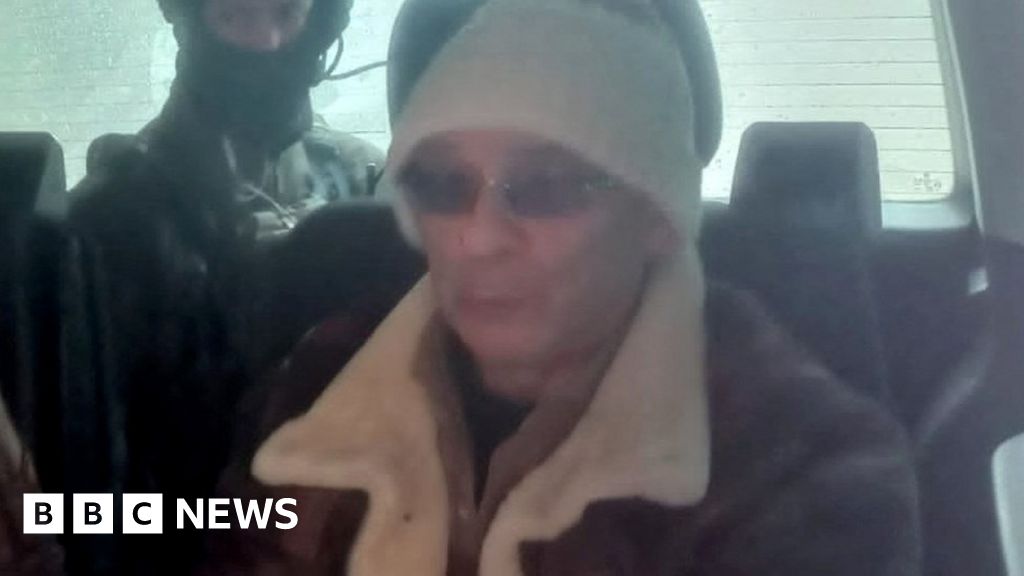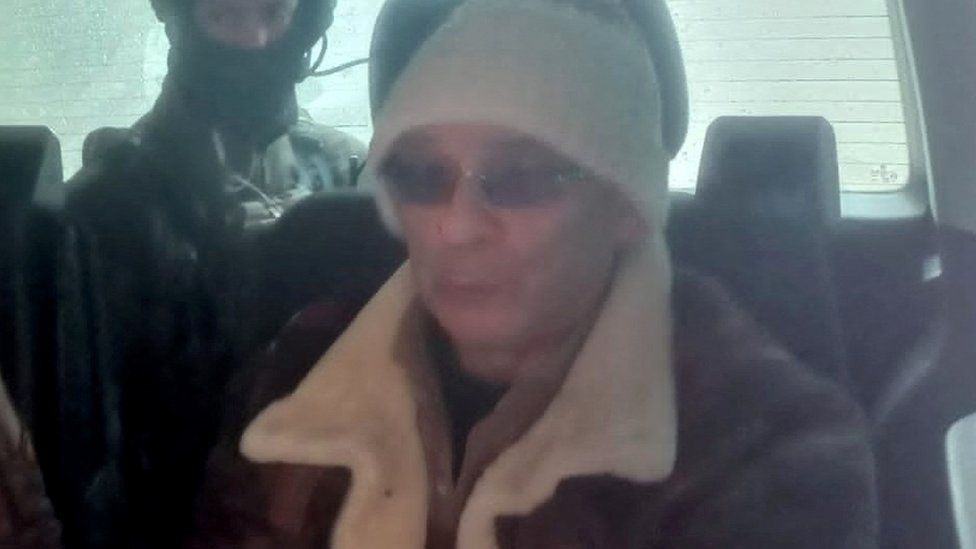

Matteo Messina Denaro was reportedly detained in a medical clinic
By Laura Gozzi in London and Davide Ghiglione in Rome
BBC News
Italy’s most-wanted mafia boss Matteo Messina Denaro has been arrested in Sicily after 30 years on the run.
Messina Denaro was reportedly detained in a private clinic in Sicily’s capital, Palermo, where he was receiving treatment for cancer.
He is alleged to be a boss of the notorious Cosa Nostra mafia and he was tried and sentenced to life in jail in absentia in 2002 over numerous murders.
More than 100 members of the armed forces were involved in his arrest.
Italian media reported that Messina Denaro was captured just before 10:00 (09:00 GMT) and taken to a secret location by the Carabinieri. He was reportedly visiting the clinic under a fake name for a course of chemotherapy.
A video circulated by Italian media appears to show people standing in the street and applauding the Italian police as Messina Denaro is led away.
Among the murders he was convicted over are the 1992 killing of anti-mafia prosecutors Giovanni Falcone and Paolo Borsellino, the deadly 1993 bomb attacks in Milan, Florence and Rome, and the kidnapping, torture and killing of the 11-year-old son of a mafioso turned state witness.
Messina Denaro once boasted he could “fill a cemetery” with his victims.
The mafia boss also oversaw racketeering, illegal waste dumping, money-laundering and drug-trafficking for the powerful Cosa Nostra organised crime syndicate. He was reportedly the protege of Totò Riina, the head of the Corleone clan, who was arrested in 1993 after 23 years on the run.
Clans nicknamed Messina Denaro “Diabolik” – the name of an uncatchable thief in a comic book series – and “U Siccu” (Skinny).
He is thought to be Cosa Nostra’s last “secret-keeper”. Many informers and prosecutors believe that he holds all the information and the names of who were involved in several of the most high-profile crimes by the Mafia, including the bomb attacks that killed magistrates Falcone and Borsellino.
Although Messina Denaro had been a fugitive since 1993, he was thought to have still been issuing orders to his subordinates from various secret locations.
Over the decades, Italian investigators often came close to catching Messina Denaro by monitoring those closest to him. This resulted in the arrest of his sister Patrizia and several other of his associates in 2013. Police also seized valuable businesses linked to Messina Denaro, leaving him increasingly isolated.
However, few photos of Messina Denaro existed and police had to rely on digital composites to reconstruct his appearance in the decades after he went on the run. A recording of his voice was not released until 2021.
In September 2021, a Formula 1 fan from Liverpool was arrested at gunpoint in a restaurant in the Netherlands after being mistaken for Messina Denaro.
Italians were glued to the screens on Monday morning when news of the arrest of the mafia boss broke.
For years, Messina Denaro had been a symbol of the state’s inability to reach the upper echelons of the organised crime syndicates. His arrest will be an unexpected sign of hope that the mafia can be eradicated even in the southern regions of the country, where the state is perceived as largely absent and ineffective.
University of Essex criminology professor Anna Sergi told the BBC that Messina Denaro’s arrest was “symbolic not just because he was the boss of Cosa Nostra, but because he represents the last fugitive the Italian state really wanted to get its hands on. That’s why we saw people clap in Palermo and why the state is triumphant – because the news feels like closure.”
However, questions are likely to arise over the timing of the arrest.
“It is yet unclear how the Monday morning raid on the clinic came about, who tipped off the authorities or – crucially – how it was possible for Messina Denaro to run around Sicily, presumably protected, for 30 years,” Prof Sergi said.
“We now know Messina Denaro was being cured for cancer so is quite sick. That is why people are saying someone within the crime world decided he was no longer useful. This means he was likely still part of structure where there is an exchange of favours between the mafia and state, and where one can be given up in return for something,” he added.
In the wake of the arrest, tributes to the work of the armed forces poured in from across the political spectrum.
Gian Carlo Caselli, a judge and former prosecutor general, said that the arrest of Messina Denaro was an “exceptional… simply historical event” that might lead to significant developments in the ongoing inquiries into the 1993 bomb attacks that killed 10 people across Italy.
Italy’s president, Sergio Mattarella, whose brother Piersanti was killed by Cosa Nostra in 1980, congratulated the minister of the interior and the Carabinieri.
Italy’s PM Giorgia Meloni also thanked the armed forces for their work in detaining the “most important member of the mafia criminal group”, adding: “This is a great victory for the state.”
Additional reporting by Daniele Palumbo

